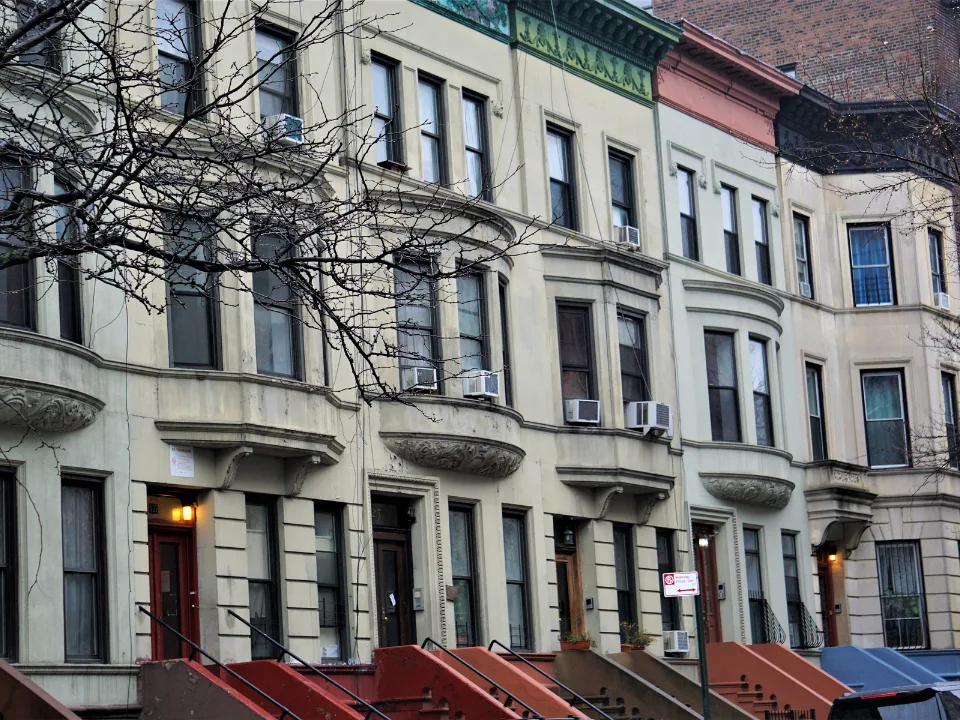- Banks are selling problem loans as property values reset and distressed borrowers fall behind, signaling the end of the “extend-and-pretend” lending cycle in CRE.
- Private credit funds are stepping in to buy discounted debt, gaining control of assets while expanding their share of the $11.9T global CRE debt market.
- Note sales and foreclosures are rising, particularly in New York City, as opportunistic investors target distressed properties for acquisition and repositioning.
The End of the Line for Extend-and-Pretend
After years of deferring distressed loan issues through repeated extensions, banks are finally pulling the plug, per Bisnow. With property values corrected and regulatory pressure easing, lenders are beginning to offload bad loans — and opportunistic private credit funds are lining up to buy.
The result is a shift in control over distressed debt and commercial real estate assets. “Folks are looking for ways to get to the dirt,” said Doug Praw, a partner at Holland & Knight. Buying debt at a discount, even with risk, opens the door to asset ownership, a strategy gaining traction fast.
Private Credit’s Rising Influence
Private lending has exploded, giving traditional banks a ready exit route from distressed debt and troubled assets. The number of private debt funds globally rose from 100 in 2011 to over 1,000 by Q3 2023, per Preqin. These funds now hold roughly $500B in assets under management — a figure projected to hit $746B by 2030.
Major players like BlackRock, Brookfield, and Beach Point Capital have expanded aggressively, acquiring firms or raising billions to invest in CRE debt. The space they’ve filled was once dominated by banks, but the tide is shifting again as financial institutions purge nonperforming loans and cautiously re-enter the lending market.
Note Sales Surge in NYC
In New York City, several high-profile note sales have helped investors take over properties at distressed pricing:
- Hakimian Capital took control of a Bronx apartment building via bankruptcy after buying the debt in 2022.
- American Exchange Group acquired 1375 Broadway after buying a $200M note on the Midtown office tower.
- Yellowstone Real Estate Investments took over the Maxwell Hotel in Midtown East following a $170M note purchase.
- Magna Hospitality Group foreclosed on a Hilton Garden Inn after acquiring a $25M mezzanine loan.
This strategy is catching on fast. Soloviev Group recently tried — and failed — to buy the note on 24 W. 57th St. from Wells Fargo. Still, they ultimately bought the property outright after losing the bid to Extell Development, showing there’s still fierce competition for distressed deals.
Get Smarter about what matters in CRE
Stay ahead of trends in commercial real estate with CRE Daily – the free newsletter delivering everything you need to start your day in just 5-minutes
Banks Back in Action
Banks, having spent the last few years reassessing their exposure, are beginning to lend again. CBRE reports that financial institutions accounted for 34% of Q1 2025 loan closings — up from just 22% a year earlier. While still below historical averages, this signals a return to form.
Meanwhile, alternative lenders are feeling the squeeze. After accounting for nearly half of all originations in 2024, their share fell to just 19% in early 2025.
Private Credit Funds Still See Opportunity
Despite the bank resurgence, private funds aren’t stepping back. Many, like RXR, are adopting more creative strategies — such as mortgage restructuring or assuming asset management roles — to improve performance and recoup value.
“It’s one thing for us to buy a piece of paper at a discount,” said RXR’s Scott Crowe. “It’s another to work with lenders to actually fix the problem.”
RXR has acquired 8M SF of New York office space in the past 18 months, nearly all through off-market deals that required collaboration with senior lenders.
Why It Matters
The unwind of extend-and-pretend policies is reshaping commercial real estate finance. For banks, it’s a necessary reset. For private credit funds, it’s an opening.
As loan maturities spike — with $384B coming due this year — expect more distressed debt to hit the market. And with real estate sales still sluggish, debt acquisitions are increasingly the fastest route to asset ownership.
What’s Next
Private credit’s influence in CRE is likely to deepen as funds pursue discounted notes and banks offload more troubled debt. Amid ongoing interest rate uncertainty and a slow transaction market, distressed opportunities will remain a hot spot for capital deployment through 2025 and beyond.


















